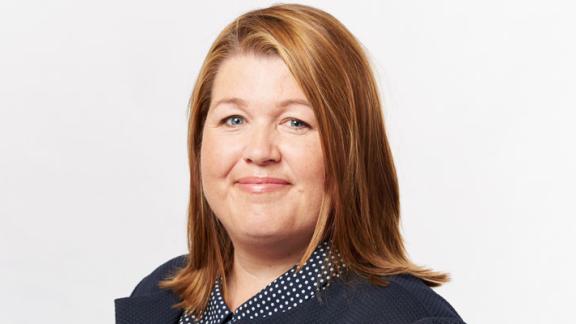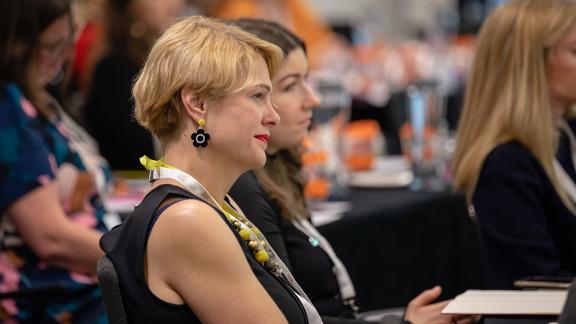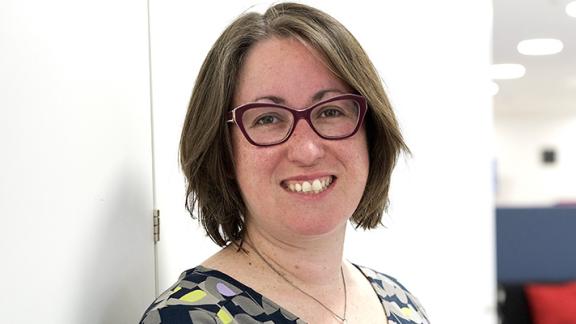Amanda Pritchard’s appointment: a moment in NHS history

Amanda Pritchard has taken up what is arguably the most significant role in the public sector, against the backdrop of the global pandemic and the establishment of integrated care systems – and is the first woman to hold the position.
This latter fact has led to a great deal of commentary. For example, when her appointment was covered in the media, her age was mentioned, how many children she has, who her husband is – one local paper even referred to her as an ‘ex Durham schoolgirl’. When Lord Stevens was appointed, there was far less focus on equivalent biographical details, and indeed, it’s difficult to imagine anyone calling him an ‘ex Newbury schoolboy’.
This, in itself, is a clear indication of why it’s so important to see a woman at the top, and especially in the NHS, where women make up 78 per cent of the workforce. There are those who have asked why it matters at all. It’s quite telling that the question was even asked. It’s not a big deal for men to see someone similar to themselves in roles of this magnitude. It’s ordinary, expected. For women, it is a momentous occasion.
Our report on female representation on NHS boards, Action for Equality: The Time Is Now, showed how much work is yet to be done to make sure women (among other underrepresented groups) are properly represented in the most senior roles in the health service. Amanda’s appointment provides us with hope; it sends a strong signal that other women and other underrepresented groups can make their way to the top.
It’s crucial that women (including transgender women) see themselves reflected in the people at the top.
At the network, our whole raison d’être is to support women – whatever their background and whether they were assigned female at birth or not – to move into leadership roles. To do that, it’s crucial that women (including transgender women) see themselves reflected in the people at the top. They need to know they have someone who understands their needs and will fight their corner. We know Amanda will do just that and that she will have the support of many to make the difference necessary to create an equal, fair and inclusive NHS.
The right person for the job
Above all, of course, she’s the right person for the job. Amanda is a respected, experienced and extremely capable leader, and has the insight and expertise to guide the health service through what will be an extremely challenging phase.
Research suggests organisations are most likely to appoint people at the top who are underrepresented in leadership roles at a time of crisis.
Indeed, with the ongoing global pandemic and the worsening backlog of care as a result, and without a settlement for social care, this has been and is likely to continue be perhaps the most challenging time for the NHS in its 73-year history. And research suggests organisations are most likely to appoint people at the top who are underrepresented in leadership roles at a time of crisis and/or following a period of poor performance. The network’s deputy chair, Tracie Jolliff, tweeted last week a link to a TED Talk on ‘rigged leadership’, which is worth a watch to understand why those who are underrepresented in leadership roles at the top can have a tougher job.
Supporting equality in leadership
Lots of people and organisations have already made clear what is needed from Amanda in her new role and the priority areas she needs to focus on. But I also want to draw on the research and to stress that what Amanda will need most will be support, time and resource. At the Health and Care Women Leaders Network, we would also like to offer our wholehearted backing to Amanda, and we’re sure the more than 1 million women working in the NHS will do the same.
The first step towards equal representation in the most senior roles is making sure everyone is equally well supported, given an equal chance to progress, and the time to do so.
For example, our own research in recent months has highlighted areas where those of us on the ground can take more action to make sure the health service is as strong as it can be, particularly in terms of looking after our people. In our reports last summer and this spring on the impact on the female health and care workforce of working through the pandemic, we highlighted the significant toll on their physical and mental wellbeing – and what NHS organisations can do to support them, in turn improving retention at a time when the health service can ill-afford to lose more staff.
Amanda’s appointment shows us what’s possible, and signals the start of more representative leadership, but there is still a long way to go to ensure it reflects all parts of our communities and workforce. It’s now our collective responsibility to help make that happen.
Sam Allen is chair of the Health and Care Women Leader’s Network and chief executive of Sussex Partnership NHS Foundation Trust. You can follow Sam on Twitter @samanthallen



